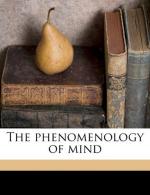|
This section contains 518 words (approx. 2 pages at 400 words per page) |

|
Enlightenment incl. subsections a & b Summary and Analysis
Here Hegel looks at Enlightenment as an insight that is directed against belief. He sets it to practical use right away, in this case by attacking impure motives and the nonsexual perversions he notes earlier that conceit causes. In doing so, he overcomes any essential objection to philosophy on the basis of its being "impractical." Insight, he claims, is relevant with respect to belief.
The first subsection is labeled to be knowledge and insight overcoming susperstition. He then proceeds to explain to readers that this Enlightened state is in fact, not merely imagined and that it has consequences. It is definitively superior to previous modes of consciousness that have types of philosophy associated with them.
Hegel discusses how belief is transformed into enlightenment. It involves doubting and questioning everything. It involves entertaining issues...
(read more from the Enlightenment incl. subsections a & b Summary)
|
This section contains 518 words (approx. 2 pages at 400 words per page) |

|




